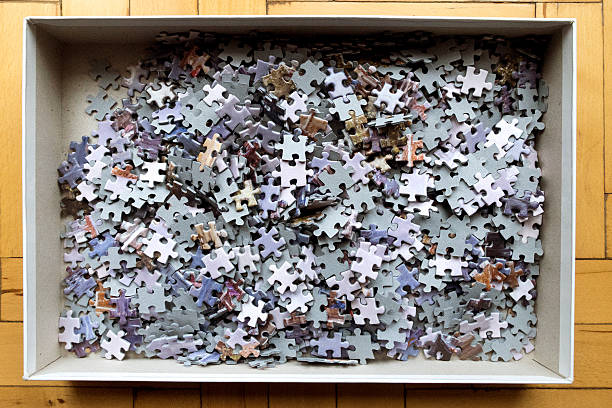Every family has a story that lingers, weaving its way into conversations at dinners and reunions. In ours, it was Grandpa’s puzzle box. The small wooden chest sat on a shelf in his study, always present yet forever untouched. Crafted from dark oak with intricate carvings and clever locks, it carried an air of mystery that fascinated everyone. No one could recall when or where he first acquired it. What made it remarkable was not its appearance, but the fact that Grandpa never opened it, not once, even when asked repeatedly by curious grandchildren.
The puzzle box became a quiet symbol of unanswered questions. As children, we tiptoed near it, imagining treasures hidden within. Sometimes, we wondered if it held gold coins, old photographs, or perhaps secret letters from a forgotten time. Yet, every time we asked, Grandpa only smiled, patting the box gently, leaving us with more curiosity than answers. That silence shaped the aura around it, making it more than just an object it became a family mystery.
Stories Behind the Box
Over the years, theories about the puzzle box took on lives of their own. Some cousins insisted it must contain money, while others believed it held letters from his youth. My father suggested it might just be empty, the joke of a wise old man teaching us not to expect too much from life’s mysteries. But whatever the truth, Grandpa never said a word. His silence was not frustrating but strangely comforting, as though the box was less about what it contained and more about what it represented.
Grandpa loved stories, and he had a gift for turning the simplest moments into lessons. He often reminded us that not every question demanded an answer, and not every mystery needed solving. This philosophy showed up in his tales as well. He wove narratives that carried hidden morals, guiding us without preaching. That love for storytelling lives on today in works like Grandpa’s children’s stories By Charles Neal, which remind us how the wisdom of the elderly often takes shape through imagination, patience, and wonder. The box, much like his stories, became a vessel not of objects but of meaning.
During family gatherings, someone would always glance at the shelf, point to the box, and ask, “So when do we get to see inside?” Laughter followed, and Grandpa would give his familiar smile, shaking his head. Over time, the unopened box became a ritual, a moment of shared amusement and a bond that tied us together through shared curiosity.
Lessons Grandpa Taught Without Opening It
In a way, the puzzle box was Grandpa’s greatest lesson. He believed that mysteries encouraged imagination. By never opening it, he kept us wondering, discussing, and storytelling. The real treasure was not the box itself but the conversations and bonds it inspired. We learned patience from it, as we never rushed to pry it open. We learned respect, because despite our curiosity, we honored his wish to keep it closed. And above all, we learned that life is not always about the answers it is about the questions that guide us.
Grandpa used to say, “Some doors in life don’t need opening for you to walk your path.” At the time, it sounded cryptic. As we grew older, it made sense. Life often leaves us with uncertainties, and our ability to live meaningfully despite them is a strength. The box symbolized that truth. Every glance toward it reminded us that the unknown does not always diminish us it can enrich us by teaching humility and acceptance.
Even without opening it, the box gave us something invaluable: perspective. We saw how Grandpa valued patience over instant gratification, wisdom over curiosity, and meaning over possessions. His puzzle box carried no sound, no clues, yet it echoed his philosophy louder than any words could.
Moment of Decision
When Grandpa passed, the puzzle box remained where it always had, silent and untouched. For the first time, the decision was in our hands. Should we open it, after years of waiting? Or should we leave it sealed as a tribute to his legacy? Emotions ran high. Part of us longed to solve the mystery, to finally see what he had guarded. Another part hesitated, fearing that opening it might strip the box of its magic.
The family gathered, and for a long time, no one moved. We debated quietly, each weighing curiosity against respect. Some said Grandpa surely intended for us to discover its contents one day. Others believed the unopened box was the lesson itself, and breaking that silence would mean losing the gift he had left us. The air was heavy with both anticipation and sorrow.
After much reflection, we realized that the decision was not just about a box it was about honoring Grandpa. He had spent decades keeping it closed, teaching us by example. Opening it might give us answers, but leaving it sealed preserved his message. The moment became less about discovery and more about memory, less about curiosity and more about respect.
True Treasure of the Puzzle Box
In the end, the box remained unopened. It still sits on a shelf, no longer in Grandpa’s study but in the heart of our family home. Strangely, its presence feels fuller than ever. We do not need to know what lies inside, because the true treasure was never physical. It was the way the box shaped our imagination, strengthened our bonds, and reminded us of Grandpa’s wisdom.
Perhaps one day, a future generation will decide differently. They may unlock it and find something ordinary, or maybe even nothing at all. But whatever they discover, the real gift will always be the journey of wondering. The mystery kept alive the spirit of storytelling, patience, and respect that Grandpa instilled in us.
Life often gives us puzzle boxes questions without answers, paths without maps, mysteries without explanations. Some we solve, some we leave untouched. Grandpa’s puzzle box taught us that leaving certain things closed does not mean losing them. Instead, it can mean preserving them, allowing their meaning to grow beyond the object itself.
So, the box remains, sealed yet not silent, because it speaks of love, memory, and the beauty of the unknown. Grandpa may never have opened it, but in truth, he gave us something far more valuable than its contents. He gave us a story that will never fade, a legacy carried not in wood and locks but in hearts and minds.


